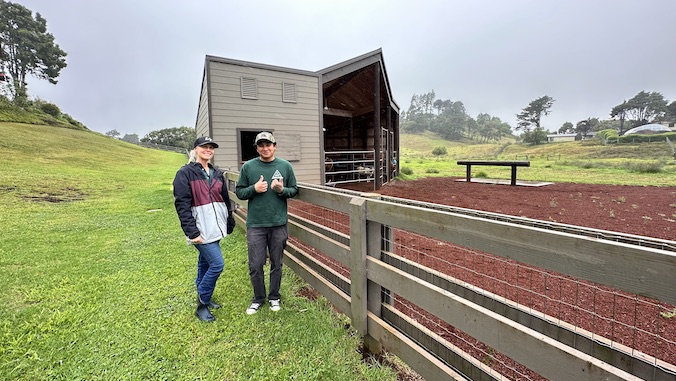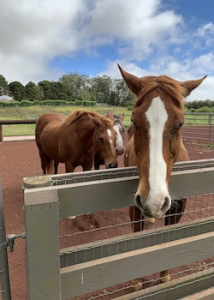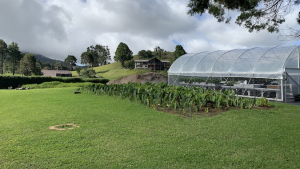
Valuable field experience at a new youth program is available to social work students at the University of Hawaiʻi at Mānoa’s Thompson School of Social Work & Public Health through long-standing community partner Liliʻuokalani Trust (LT).

A private operating foundation, LT, serves orphaned and destitute children in many different capacities, with preference given to the Native Hawaiian community. Its new Hawaiʻi Island-based program, LT Ranch, offers social work students completing their practicum requirements the opportunity to work at day camps with youth (ages 13–18) who find themselves in difficult circumstances.
This summer, bachelor of social work student Thomas McNorton traveled from his Mililani hometown to Hawaiʻi Island to complete his final two semesters of practicum. He called his time at the ranch “life-changing.”
“I felt that this work would be such a meaningful way to give back to my community and help other people,” McNorton said.
Aimee Chung, field education coordinator at the Thompson school, emphasized that being involved with community partners benefits all involved.
“For an Oʻahu student to be able to fly over and have this very immersive experience, one that’s so different from staying at the dorms at UH, is such a unique opportunity,” she said. “A field placement like this benefits both the student and the community. Experiences like this represent the essence of field education.”
Fostering connections with the land, arts
LT Ranch’s programs are primarily nature-based, serving to foster a connection with the land and the arts. It is composed of three elements: art, during which campers engage in creative projects such as ceramics; animals, where they learn how to care for horses and other farm animals; and ʻāina (land), where campers work in the greenhouse to grow various fruits and vegetables.

Through this hands-on work, which Chung describes as “therapeutic and centering,” LT and the Thompson school hope that practicum students will become more in touch with themselves and gain confidence.
“These activities create opportunities for the ōpio (youth) to creatively express themselves,” McNorton said. “Watching the ōpio’s growth through engagement in these activities was amazing. All of them were gifted and creative, and I believe that the LT Ranch program offered the opportunity to connect or discover that part of themselves.”
In addition to helping the campers, McNorton said that his practicum experience afforded him a better understanding of himself.
“I can see areas where I’ve definitely grown, and now know what to work on to develop in a professional capacity,” he said. “Assisting with the LT Ranch program has taught me how to be in the moment. The value of being present with other people, that’s the greatest gift you can give another person.”

